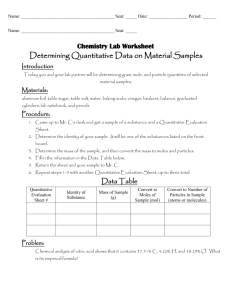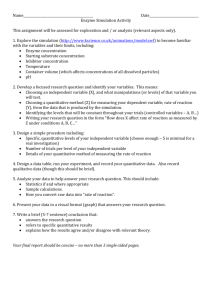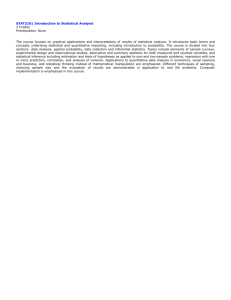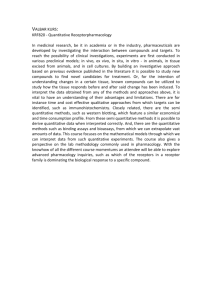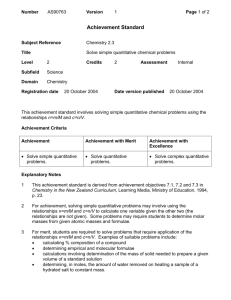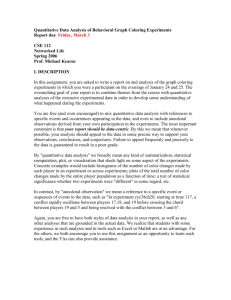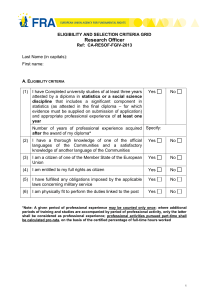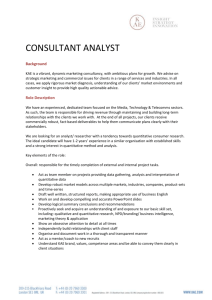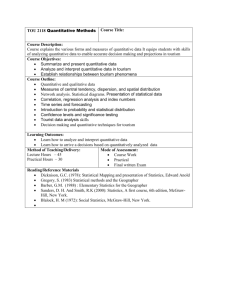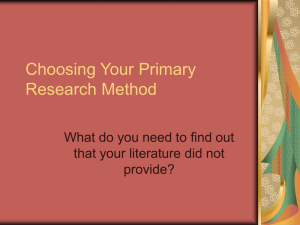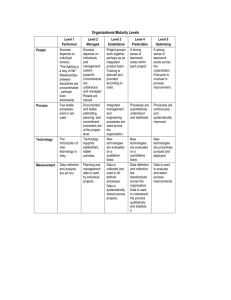ISS-3209-1415 Techniques for Understanding Quantitative
advertisement
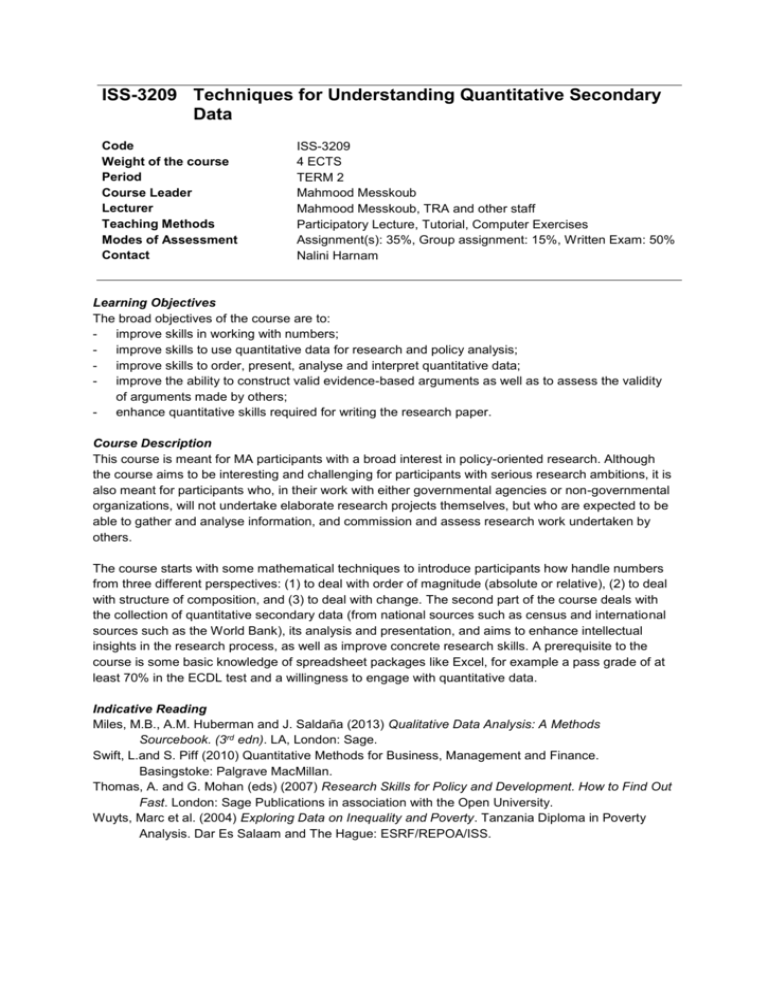
ISS-3209 Techniques for Understanding Quantitative Secondary Data Code Weight of the course Period Course Leader Lecturer Teaching Methods Modes of Assessment Contact ISS-3209 4 ECTS TERM 2 Mahmood Messkoub Mahmood Messkoub, TRA and other staff Participatory Lecture, Tutorial, Computer Exercises Assignment(s): 35%, Group assignment: 15%, Written Exam: 50% Nalini Harnam Learning Objectives The broad objectives of the course are to: - improve skills in working with numbers; - improve skills to use quantitative data for research and policy analysis; - improve skills to order, present, analyse and interpret quantitative data; - improve the ability to construct valid evidence-based arguments as well as to assess the validity of arguments made by others; - enhance quantitative skills required for writing the research paper. Course Description This course is meant for MA participants with a broad interest in policy-oriented research. Although the course aims to be interesting and challenging for participants with serious research ambitions, it is also meant for participants who, in their work with either governmental agencies or non-governmental organizations, will not undertake elaborate research projects themselves, but who are expected to be able to gather and analyse information, and commission and assess research work undertaken by others. The course starts with some mathematical techniques to introduce participants how handle numbers from three different perspectives: (1) to deal with order of magnitude (absolute or relative), (2) to deal with structure of composition, and (3) to deal with change. The second part of the course deals with the collection of quantitative secondary data (from national sources such as census and international sources such as the World Bank), its analysis and presentation, and aims to enhance intellectual insights in the research process, as well as improve concrete research skills. A prerequisite to the course is some basic knowledge of spreadsheet packages like Excel, for example a pass grade of at least 70% in the ECDL test and a willingness to engage with quantitative data. Indicative Reading Miles, M.B., A.M. Huberman and J. Saldaña (2013) Qualitative Data Analysis: A Methods Sourcebook. (3rd edn). LA, London: Sage. Swift, L.and S. Piff (2010) Quantitative Methods for Business, Management and Finance. Basingstoke: Palgrave MacMillan. Thomas, A. and G. Mohan (eds) (2007) Research Skills for Policy and Development. How to Find Out Fast. London: Sage Publications in association with the Open University. Wuyts, Marc et al. (2004) Exploring Data on Inequality and Poverty. Tanzania Diploma in Poverty Analysis. Dar Es Salaam and The Hague: ESRF/REPOA/ISS.
